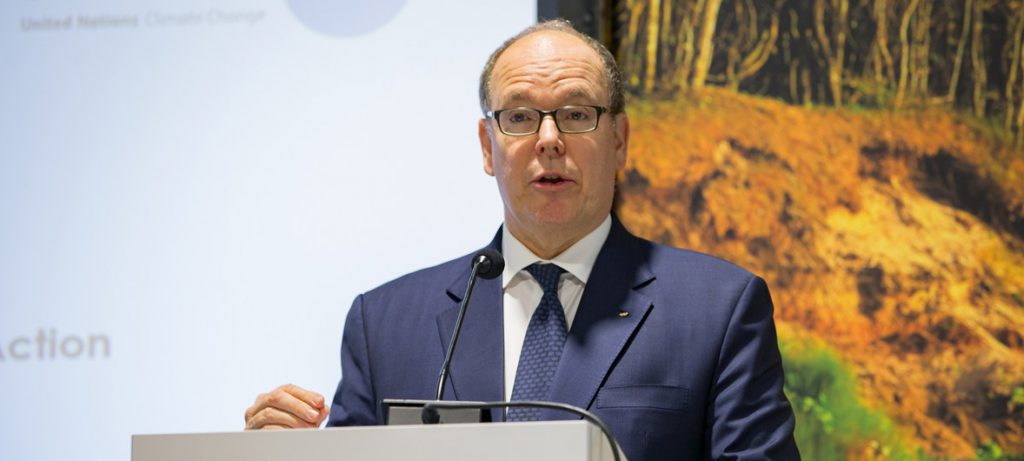Sports organisations with an ‘authentic and legitimate commitment’ to sustainability can attract new fans and deepen relationships with existing fans, says Brian McCullough
The Meeting of the Parties 24 (COP24) concluded this past December with a renewed energy to fulfil the goals of the Paris Climate Agreement and outlined specific ways to achieve those objectives. Most encouragingly was the openness of the UNFCCC to engage specific business sectors, including the sport sector, in the global effort to reduce the effects of climate change.
I was honoured to participate in the initial meetings with the UNFCCC Secretariat and other sport sector and sustainability experts to discuss the parameters of a climate action agreement specific to the sport sector. This work continued up to COP24 in Poland, where the Sport for Climate Action Framework was announced with the initial signatories.
The work done on behalf of all those individuals involved was inspiring. The various opinions and desire to appeal to the broad sport sector from international organisations like FIFA and the IOC, to community or recreational sports organisations, was challenging. The broad perspectives and backgrounds of the individuals in the room provided such a rich and broad assessment of the needed aspects of the Framework to engage the entire sport sector.
Undoubtedly the driving force of motivation for all those involved was a realisation that climate change is real and threatens the way that humanity will consume and participate in sport in the future.
Much like the resulting documents from COP24, the Sport for Climate Action Framework outlines specific actions that sport practitioners can take to contribute to the global effort of the Paris Climate Agreement. Not only does the Framework outline what has been practically demonstrated to work, but it also supports the necessity to base these initiatives and processes on data-driven decisions and transparency.
The unique position of sport
It is often said, and I agree, that the sport sector is in a unique position to influence sustainable behaviours among its customers (i.e., fans). This affinity opens a powerful and influential line of trust and communication between a sports team and a fan. Each sport entity is in a position to make sustainability part of the fabric of the organisation to the point where sustainability is the organisational norm and an expected behaviour among employees, participants, fans, and all stakeholders.
The research Jonathan Casper (North Carolina State University), Michael Pfahl (Bangkok University), and I conducted supported the fact that a sport organisation influences fans’ sustainable behaviour at events and even at home. Not only can the connection with the team be leveraged, sport organisations can use the individual’s connection with the stadium, campus, and city to promote sustainable behaviours.
Moreover, sport organisations with an authentic and legitimate commitment to environmental sustainability are able to attract new unaffiliated fans and deepen the commitment of existing fans.
A deepened affinity results in economic profits since fans are consuming the team more by attending games, reading news stories, following on social media, and buying team merchandise. However, effective leadership is necessary to realise these organisational outcomes and to provide the vision to fulfil the steps outlined in the Sport for Climate Action Framework.
These leadership qualities go beyond innovation and being proactive. Melanie Sartore-Baldwin (East Carolina University) and I called for sport leaders to adopt ecocentric management principles. Our call stems from the basis that sport practitioners must realise the interdependent relationship between humans and the environment.
Whether from a business perspective or an ecocentric perspective, sport organisations have a duty and a responsibility to address the environmental impacts of their respective organisations.
Sport organisations can go further to encourage their supply chain, sponsors, and fans to follow suit. It was clear that the panel of experts, who participated in the initial meetings to outline the components of a Sport for Climate Action Framework, recognised this connection.
But more must be done for the sport sector to realise its full potential to reduce its environmental impact and use its social platform to promote and influence suppliers, sponsors, participants, and fans to choose more sustainable behaviours too.
Moving forward
The sport sector as a whole is currently riding the wave of an environmental movement. However, many individual sport organisations have yet to join this movement as a result of hesitation, fear of backlash, or lack of internal expertise. Moving forward, more organisations need to participate and engage in environmental sustainability initiatives internally and externally as the Sport for Climate Action Framework proposes.
Bold and visionary leaders are necessary to embark on this journey to reduce their individual organisation’s impact on the surrounding environment and thus help the sport sector reduce its overall impact on the global ecosystem.
But practitioners are not alone. Practitioners and academics focusing on sport and sustainability, behavioural sciences, organisational behaviour, and other fields can work together on the shared goal of protecting the environment in and through sport. The level of expertise both parties bring to this collaboration will certainly fulfil the goals of the Paris Climate Agreement and the processes in the Sport for Climate Action Framework.

Everyone’s collective efforts are needed to reduce the environmental impacts that threaten our shared planet. This sentiment is true, in general, and also true for specific business sectors, organisations, and individuals. This collective and concerted effort is necessary on behalf of all the sport sector’s stakeholders including owners, governance boards, practitioners, suppliers, sponsors, participants, and fans to reduce the environmental impact of the sport sector.
The bottom line is, it is on sport organisations to lead the way and to be the example through their efforts, then communicate to stakeholders what else can be done, educate these stakeholders on how to reduce their impact, and create systems to make it easy for them, specifically fans, to choose more sustainable behaviors while consuming sport and in their everyday lives.
The Sport for Climate Action Framework recognises the ideals of sport and its responsibility to influence and promote positive social change by addressing the biggest global threat – climate change.
Cheers to those who strive to make this world more sustainable. Let us all follow the call of the Sport for Climate Action Framework and let the echoes ring to all corners of the sport sector and beyond.
Brian P. McCullough PhD, is the associate professor of Sport Business Leadership at Seattle University and the co-editor of the Routledge Handbook of Sport and the Environment










Leave a Comment
Your email address will not be published. Required fields are marked with *